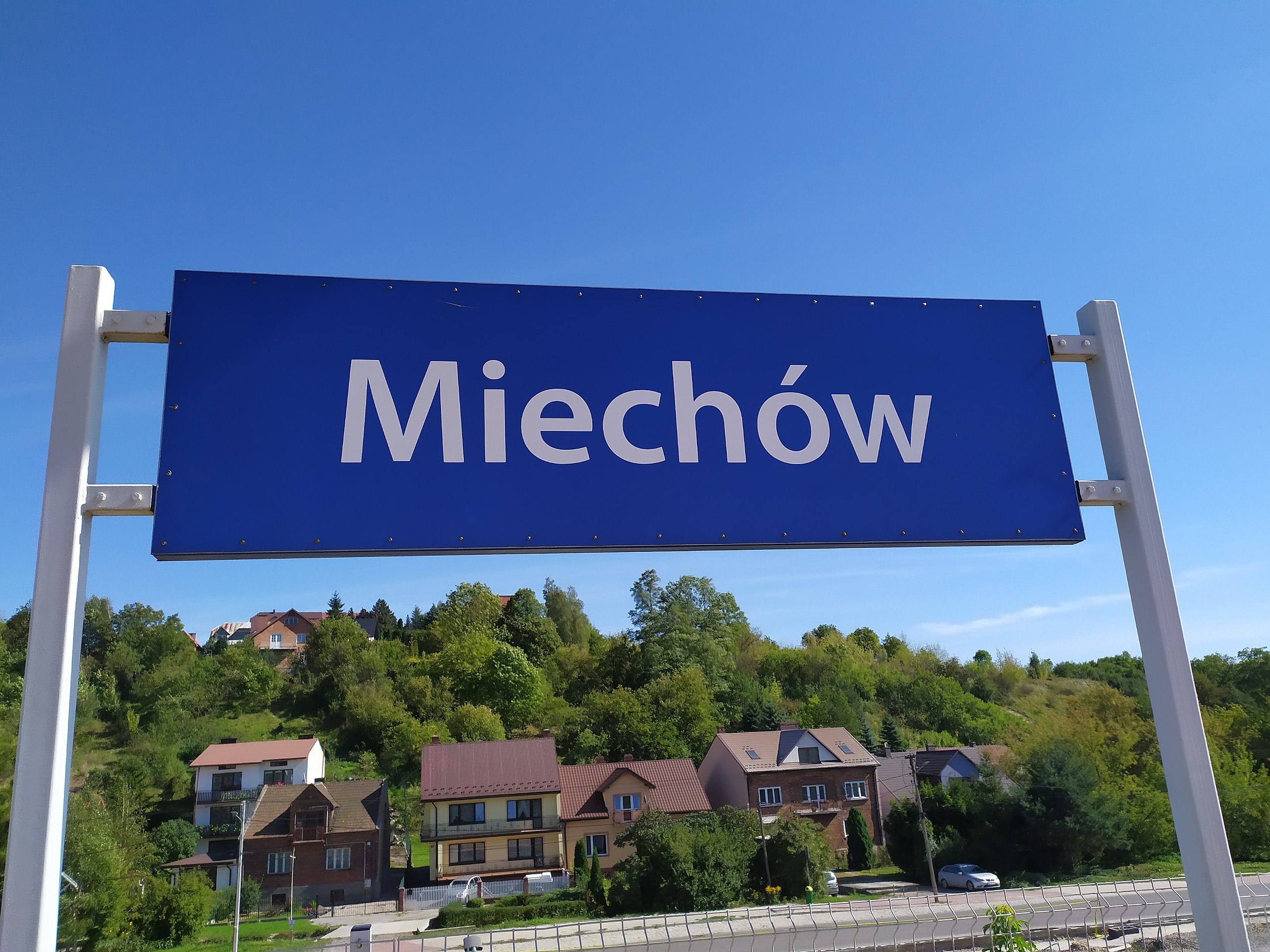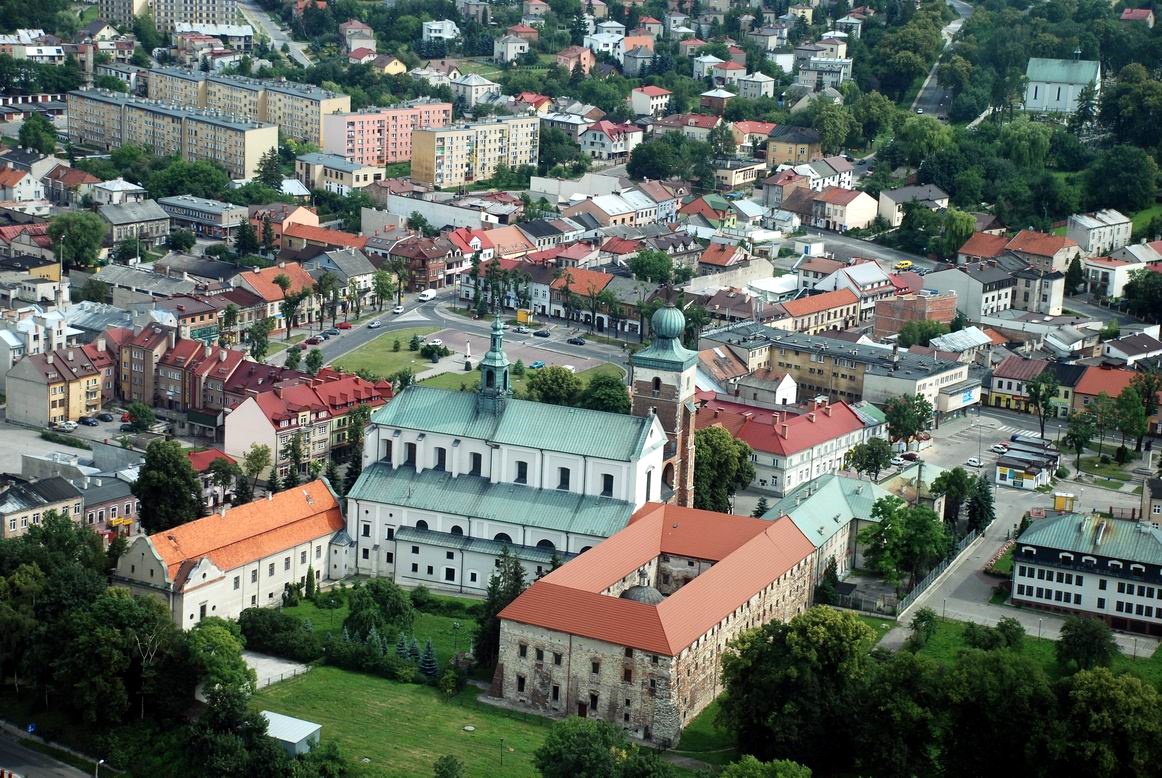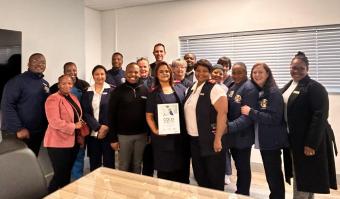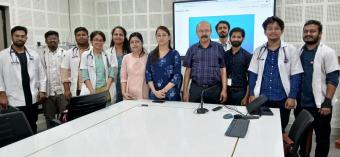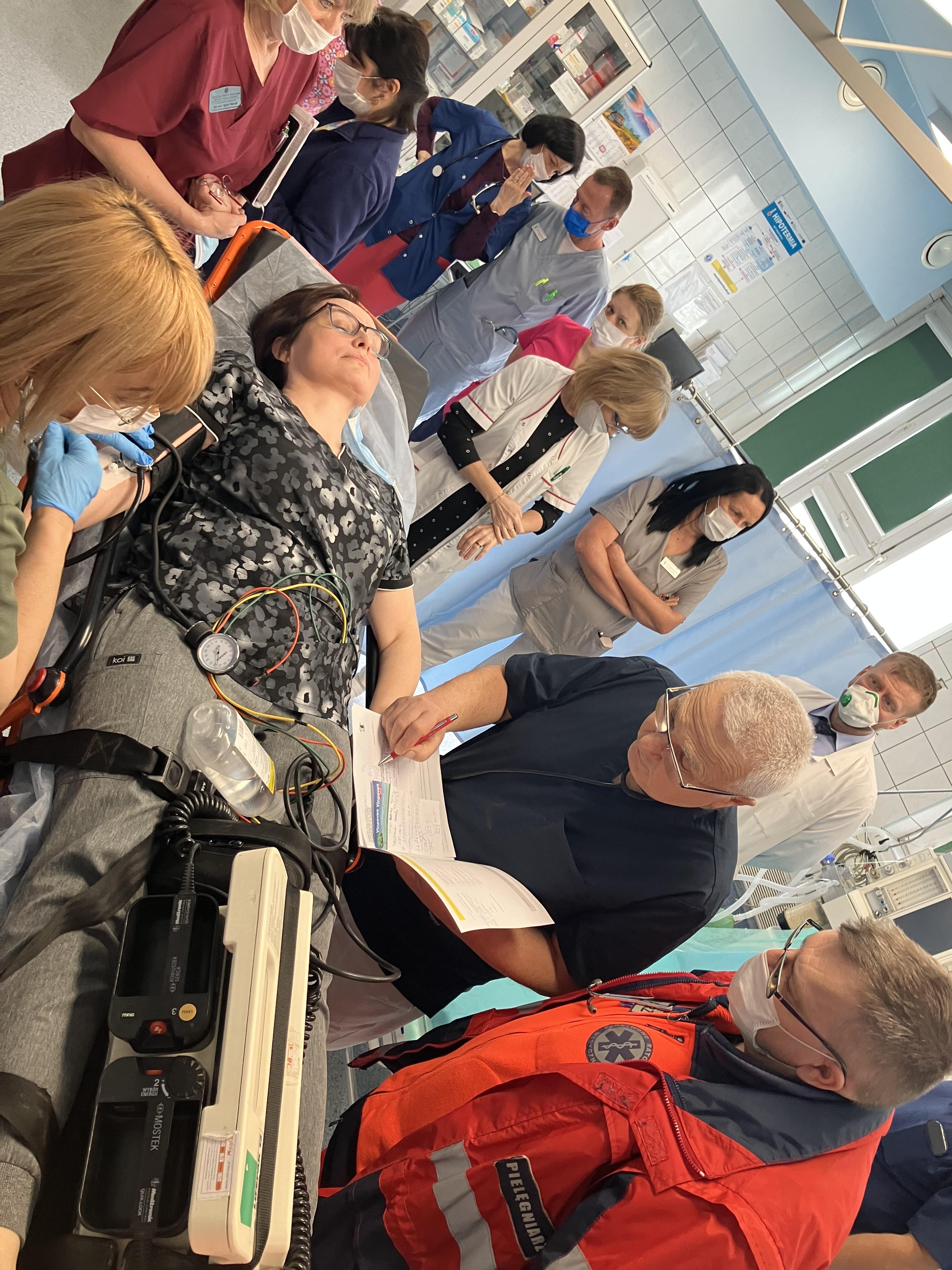
At 9 am on Friday 24 March, an elderly citizen of Miechów, a town in southern Poland, had just finished enjoying breakfast with his family when he started feeling weak and dizzy. He’d been in the middle of telling a wonderful story but broke off mid-sentence, confused. It was as if his language had left him, and his words were turning into gibberish in his mouth.
Moments later he found himself lying on the floor, his concerned family gathered around him.
Not long afterwards, a phone buzzed in the pocket of the neurologist on duty at St Anna’s Hospital. The call came from the ambulance that was making speed through the streets of Miechów: a suspected stroke patient was on the way.
The neurologist passed on the alert to the CT department and the laboratory before making his way to the emergency department, the stroke nurse who was carrying the Angels stroke bag matching his hurried pace.
When the 85-year-old was wheeled into the ED on the ambulance stretcher at 10.25 am, the doctor noted with satisfaction that the EMS team had already measured the patient’s glucose and inserted a cannula.
This was exactly the way they had practised it.
Whatever you need, we will do it
The path that leads to this moment takes us back to late summer 2022 when Angels consultant Katarzyna Putyło paid a visit to St Anna’s Hospital and met with the director, Dr Mirosław Dróżdż, the head of the stroke unit, Dr Jacek Jędrzejewski, and his designated successor, Dr Małgorzata Dratwińska- Michta.
Miechów is situated roughly 40 km to the north of Kraków and 70 km south of Kielce, its location between these two major cities making it the ideal site for a primary stroke centre. This was exactly what the team at St Anna had in mind as soon as they obtained the necessary contract from the National Healthcare Fund (NHF).
After meeting Katarzyna the doctors wrote to the NHF, letting the health authority know that, in addition to their own resources, their future stroke unit would enjoy the support of Angels.
Early in 2023, the contract having been secured, Katarzyna watched doctors and nurses, heads of departments, specialists and paramedics file into the room where the first multidisciplinary meeting was about to commence. Open-minded people from every step along the patient pathway had turned up for the meeting, bringing with them a feeling of optimism and an eagerness to help.
Many of them had witnessed the outcomes for stroke patients who weren’t able to reach acute treatment in time. Their determination to be part of the change was summed up by the head of the local EMS station who told doctors: “Whatever you need, just tell us and we will do it!”
Everything everywhere all at once
By late winter, the team at St Anna were in the thick of a training programme that ranged from prehospital training for EMS to post- acute training for nurses. Head stroke nurse Jolanta Dunal encouraged her team to complete the Stroke Nurse Certification course in the Angels Academy, and head of the emergency department Dr Joanna Sowizdraniuk had her team join the hyperacute training for neurologists. They had both been involved in scripting the protocol and believed that to meet the standard of care their teams didn’t only need to know what to do; it was equally important that they understood why.
Ahead of a pathway simulation scheduled for 17 March, the doctors at St Anna learned as much as they could from what hospitals elsewhere did to minimise delay. They considered every opportunity, attended to every detail.
Prenotification? Check. Preadmission? Check. CT room cleared? Check. Laboratory alerted? Check.
The patient would remain on the ambulance stretcher as they proceeded to the CT room via a pitstop in the ED for a neurology assesment and to draw blood. The laboratory had a plan for prioritising blood samples from stroke patients but in the absence of contra- indications the treatment decision wouldn’t wait for the results.
An ED nurse would monitor the patient while the stroke nurse prepared and administered the thrombolytic, and if an angio CT was indicated, the contrast could be administered through a second catheter at the same time.
Everyone had a checklist, and everyone had each other’s back. It was easier to set good habits than to change bad habits, the team at St Anna believed, so they paid attention to everything, everywhere, all at once.
Every minute counts
Late on Friday afternoon, 17 March, Katarzyna posted the following message in the Angels WhatsApp group: “Wanted to share with you quickly the amazing result of a simulation today in a new treating hospital. I am super proud of them. Their DTN time was 11 minutes and 40 seconds, and I must say it is due to amazing stroke pathway organisation and great cooperation of EMS, ED and stroke unit team. They’ve implemented every guideline, used every tool. They now feel confident and have made
it known that they will be ready to receive stroke patients from Monday.”
There had been one tiny delay during the simulation, Katarzyna later said. A short wait at the elevator, no more than a minute. But for the team at St Anna, a minute wasted was a minute too long. Hospital director Dr Mirosław Dróżdż had attended the simulation, and after a short discussion it was agreed that cases of acute stroke would have priority at the elevator and the stroke team would be equipped to override commands by other users.
Exactly one week later on the following Friday, the 85-year-old citizen of Miechów, having arrived at the hospital at 10.25 am, underwent a CT scan at 10.37 am. Treatment commenced at 10.42 am, angio CT at 10.44 am. St Anna’s stroke team had treated their first stroke patient in 17 minutes.
Not long afterwards, this patient was able to return to his home and enjoy more breakfasts with his family and tell them more wonderful stories. But none could be more wonderful than the greatest story of them all – about the dedication, teamwork and attention to detail that came together just in time to give him a second chance at life.
